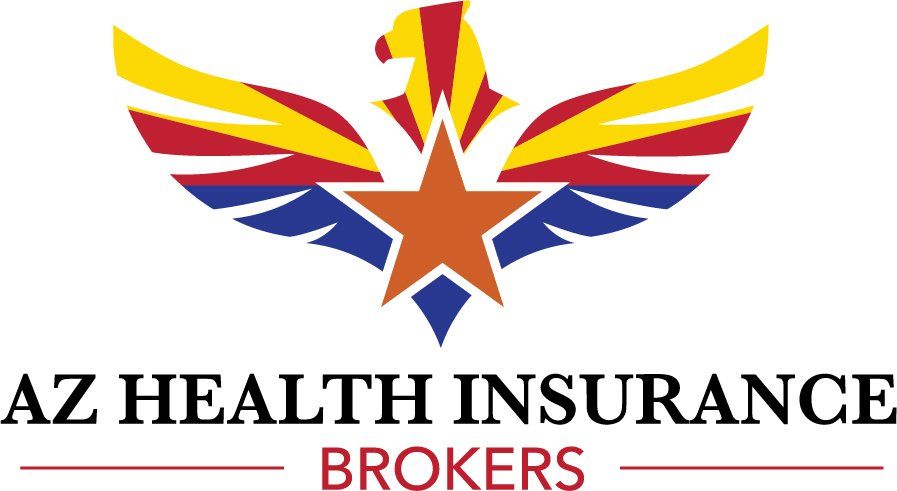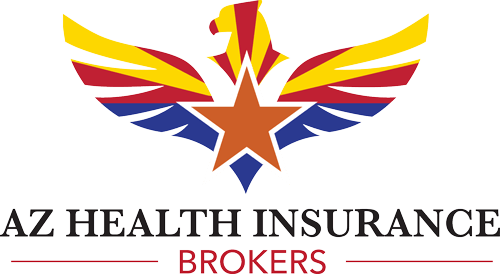The Complete 2026 Guide to Buying Group Health Insurance in Arizona
Group health insurance in Arizona is employer-sponsored medical coverage purchased under a single policy that covers eligible employees and, in many cases, their dependents. AZ Health Insurance Brokers works with Arizona construction firms, engineering groups, medical practices, and startups to design compliant group health strategies, manage renewals, and reduce premium volatility.
Year after year, paid health insurance continues to be a top benefit workers want from employers. A report by Forbes found the top benefit employees want from employers is employer-covered healthcare. Employer-covered healthcare is also the top benefit employers say they provide, so it’s likely your top competitors are offering it to stand out to talent.
According to a 2025 report by the United States Census Bureau, around 89% of U.S. employees had health insurance. From our experience at AZ Health Insurance Brokers, that number aligns with what we’re seeing in Arizona. Nearly every mid-size employer we talk to already offers health insurance.
In addition to meeting employee demand, there are many other benefits to providing health insurance for workers, including:
- Tax advantages: Companies can deduct their contribution toward their employees’ health insurance premiums as a business expense. This also lowers employee’s taxable income.
- Reduced operating costs: A 2025 survey found half of American Millennials and Gen Z (and a fifth of Baby Boomers) would take a pay cut if their employer prioritized their well-being.
- Better work outcomes: According to the American Mental Wellness Association, happy employees are 12% to 20% more productive than unhappy employees, which can increase profitability at your company.
Simply offering group health insurance isn’t always simple, though. In 2026, Arizona business health insurance renewal premiums have seen an average increase of 11% to 19%. While solutions like level funded insurance plans make the most sense for “healthy” business groups to escape these increases, it’s important to compare all your options to choose the best group health insurance plan for your business and your employees.
If you’re an Arizona business owner or startup founder interested in keeping employees happy and healthy, this guide explains how to buy commercial health insurance in Arizona. New Paragraph
Key Takeaways
- Group health insurance is the most in-demand employee benefit for Arizona businesses in 2026.
- Arizona group health insurance premiums are increasing an estimated 11%–19%, largely driven by GLP-1 drug utilization.
- Employers have several ways to buy group health insurance in Arizona, including fully insured, level funding, self-funding and partial funding, as well as professional employer organization (PEO) services. With 2026 premium increases averaging up to 19% in Arizona, level funded health plans for businesses can save companies money when employees are relatively healthy.
- Working with a licensed Arizona group health insurance broker does not increase employer cost and improves plan design and compliance.
Who Group Health Insurance in Arizona Is Best For (and When to Consider Alternatives)
- Best for companies with 2+ W-2 employees
- Best for employers wanting predictable benefits
- May not be ideal for very small or highly distributed teams
- Alternatives include ICHRAs or individual-market strategies
1. What Is Group Health Insurance?
Nearly 58% of non-elderly Americans get their health insurance through their employer, according to the KFF. Most large and midsize companies offer group health insurance to their employees, as do many smaller businesses that are looking to attract and retain top talent.
Group healthcare coverage refers to a single health insurance policy issued to a business that covers all eligible employees and, many times, their partners and dependents. Individual health insurance, contrastingly, is one policy issued to one person or family for health insurance.
One of the most significant differences between the two types of health insurance is how the insurance company calculates risk.
- With individual health insurance plans or family health insurance plans, the premium costs are primarily based on the age and medical history of the person or family seeking coverage, although location and tobacco use also play a role.
- With group health insurance, the risk is spread over the entire group, using information such as age, gender and prescription history of the employees. The goal of an insurance company is economy to scale, meaning the more the company can spread risk among a larger group of people, the better the rates will be.
Employers can choose to cover the full cost of the group health insurance premium for their employees, or they may require their employers to pay a portion. When you’re trying to determine how much of the premium you’ll cover for your workers, keep in mind the Affordable Care Act (ACA) offers tax credits to eligible small businesses to help offset the cost of health insurance.
2. How to Enroll in Group Health Insurance in Arizona (Step-by-Step)
There are four ways to buy group health insurance in Arizona. They are through:
- Fully insured health plans
- Level funded health plans
- Self-funding and partial funding
- Professional employer organizations (PEO)
Note: The first two options on the above list are ideal for 95% of companies (with fewer than 250 full time employees) that want to buy group health insurance, according to commercial health insurance broker Ryan Calloway. Let’s expand on the basics of each option.
#1. What Is Fully Insured Group Health Insurance?
In the fully insured market, insurance carriers don’t price the policy based on the health/pre-existing conditions of your employees. Instead, rates are based on two things: age and county.
Naturally, this makes the premium slightly higher, because anyone who meets the criteria to deploy a group health insurance plan can gain acceptance into the fully insured platform.
“The good thing here is that employers can’t be discriminated against due to the health of employees,” says Calloway. “The rates are what they are, and they’re only based on age and county.”
Who fully insured group health insurance plans are good for: Small groups (2 to 50 eligible employees) and those with pre-existing conditions may benefit from fully insured group health insurance plans.
You should also know: If your group is more than 50 people, you can go the fully insured route, but then you’ll need to get your policy underwritten. That changes the landscape a bit and should involve a more detailed discussion with your business health insurance broker.
#2: What Is Level Funding in Group Health Insurance?
Level funded insurance is an excellent option if you have a generally healthy group of employees you wish to provide coverage for. In level funding insurance, the insurance carrier underwrites the policy based on your employees’ current and past health. The more people you have in your group, the greater potential for savings, because the carrier can spread the risk out over the group.
Who level funded group health insurance plans are good for: Companies with employees that number from 6 to 1,000 – the healthier your group, the more discounted your premium will be. That’s why level funded plans are such a good option to consider amid premium rate hikes in Arizona in 2026.
You should also know: You can get money back at the end of the year if the total amount of claims is lower than what was projected at the outset.
#3: What Is Self-Funding and Partial Funding in Group Health Insurance?
Self-funded insurance plans are a great option for large employers that have 1,000+ employees. Self-funding works like this: you approach the carrier and essentially “rent” their network. As the employer, you pay for claims as they’re incurred, and, as such, you absorb the risk. You reimburse the carrier for the difference between the amount the employee is paying and the contracted amount between the facility and the insurance carrier.
Partial funding is the same idea, only in partial funding, you purchase reinsurance (also known as stop-loss insurance) to cap your risk. This can apply on an individual employee basis or for the group as a whole, known as the aggregate.
- Individual employee basis: If any one employee incurs a major expense, you only pay whatever amount you set as your maximum employer liability. The stop-loss insurance then kicks in and covers anything above your maximum liability.
- Aggregate: The same principle applies, only it looks at the whole group. You set your maximum employer liability for the aggregate, and once you hit that, stop-loss insurance kicks in and covers anything above the cap.
Who self-funded and partial funded group health insurance plans are good for: Self-funded and partial funded group health insurance plans may work for large employers with 1,000+ employees.
You should also know: You can tailor the self-funded or partial funded group health insurance plan however you like, setting things such as office visit and prescription copays, which could help offset GLP-1 costs. You may choose to work with a third-party administrator (TPA), who can provide a flexible plan design for your business.
#4: What Is a Professional Employer Organization (PEO)?
A professional employer organization (PEO) exists to spread risk for smaller groups (15 employees or fewer). Instead of the benefits being under the employer’s tax ID number, you actually deploy benefits under the PEO’s tax ID number. Your group of employees joins a much larger group of people, thereby spreading the risk among the bigger group and, thus, reducing your rates.
A PEO typically manages not just your company’s health insurance, but also your 401(k) and your payroll. PEOs provide human resources (HR) support, as well.
Who PEO group health insurance plans are good for: Employers with small groups (15 employees or fewer) who want to offer rich benefits may benefit from PEO group plans.
You should also know: You’ll pay fairly steep administration fees for a PEO platform, typically $60 to $100 per employee on the payroll per month. This administration fee is typically the most significant reason why a PEO for group health insurance plan may not be a cost-effective solution for most groups. However, it’s still worth exploring to compare your options.
| Plan Type | Best For | Risk Level | Cost Predictability |
|---|---|---|---|
| Fully insured | Small groups, pre-existing conditions | Low | High |
| Level Funded | Healthy mid-size groups | Medium | Medium-High |
| Self-funded | Large employers | High | Variable |
| PEO | Very Small Groups | Low | Medium |
3. How Can You Buy Group Health Insurance in AZ?
To enroll your company in a health insurance plan, you’ll need to work with an agent or broker, fill out an employee census form, get quotes and select and enroll in a health insurance plan.
Now that you understand the four options for buying group health insurance, let’s look at the five steps to actually getting your company enrolled in a plan.
#1: Contact a Reputable Health Insurance Agent or Broker
There are many scenarios in which it won’t cost you extra to use a broker to buy group health insurance in Arizona. At AZ Health Insurance Brokers, we would love to set up a call to gain a complete understanding of your needs. Getting in touch with us is easy.
- Call us at 602.617.4107, or
- Click the appropriate “Get a Quote” button on our website, and fill out the form.
In our first phone call, we’ll ask several questions to get a clear view of your group health insurance needs, including the size of your company. To be eligible for small business health insurance, a company must have two or more non-common law employees. Depending on the size, requirements for quoting will vary.
This determination is important, because the ACA limits what can affect the rates for small groups. Age of enrollees, tobacco use and location can influence small group rates, but medical claims history, health of enrollees and the business type cannot affect small group rates.
We’ll also discuss the types of employees you have, whether they work full- or part-time, and which of the four types of coverage would be the best fit.
Another benefit of working with us is that we’ll help ensure you meet compliance requirements for using health insurance pre-tax deductions. Businesses need to set up a section 125 cafeteria plan in order to receive certain benefits on a pre-tax basis, per the Internal Revenue Service (IRS). A premium-only plan (POP) document is also required for groups that offer a pre-tax plan to employees. We’ll help you file all necessary paperwork to ensure you’re meeting legal requirements.
#2: Fill Out an Employee Census Form
Your next step is to fill out what’s called an “employee census” form. Insurance companies use these to gather information about your employees, so they can estimate the healthcare costs for your group. This is how they come up with a rate quote.
The census form will ask for the following information for each of your employees, their spouses and their dependents:
- Name
- Date of birth
- ZIP code
- Gender
- Whether the employee plans to waive coverage
** We also need a copy of their existing insurance renewal (if plan is currently in place) and some superficial company data (address, TIN, etc.)
#3: Get Quotes
Next, it’s time for your broker to get quotes from the insurance carriers they’ve identified would be the best fits for the type of group health insurance you need. An experienced broker knows the requirements set forth by the IRS, the ACA and the insurance carriers themselves, all of which affect the types of plans you can offer.
“We take the data you give us and bid to every carrier,” Calloway says. “This way, we can deploy the best tailored solution to meet your needs. Medical, dental insurance, vision, disability – we shop it all for you, to get you exactly what you’re looking for at the best possible rates.”
Remember that different carriers have different value-adds. Do you want a robust wellness program? Are you simply looking for the least expensive rates? Brokers listen to what’s important to you and your company culture, and then take the weight of finding it off your shoulders.
#4: Choose Group Health Insurance
This is a critical step. You and your broker should examine the plan details, including things such as:
- The waiting period for new hires: You get to set this.
- Eligibility restrictions: Arizona is a right-to-work state, and employers get to define eligibility restrictions. For example, you may offer health insurance to employees who work any number of hours. You’re not bound by the minimum 30 hours of work a week that many states require.
- Open enrollment: You get to decide how long you want the window to be for employees to make their selections.
Your broker can help you understand the details and quotes. Then, it just comes down to enrollment, which brings us to the final step.
#5: Enroll in Group Health Insurance
Once you decide on a group health insurance type, it’s time to enroll. Make sure to choose a broker who does this process electronically, as that makes the process faster and simpler.
“Conducting the enrollment process online is not only easier for everyone, but it gets better engagement with employees,” Calloway says.
4. What Are the Arizona Group Health Insurance Brands You Should Consider?
There are several companies that offer group health insurance plans in Arizona. At Arizona Health Insurance Brokers, we’ll help you find the one that makes the most sense for your business. Your options include the following Arizona business health insurers.
Aetna
Aetna offers both preferred provider organization (PPO) plans and health maintenance organization (HMO) plans for businesses. The provider offers comprehensive coverage options that include health, pharmacy, dental and vision benefits. Learn more about Aetna group health insurance.
Blue Cross Blue Shield (BCBS) of Arizona & Prosano Health
Blue Cross Blue Shield (BCBS) of Arizona is one of the most popular insurers in Arizona, especially for businesses with 51 or more employees that are looking for fully insured plans. Nearly all Arizona healthcare providers (98% of hospitals and 96% of physicians) are included in the BCBS of Arizona statewide provider network.
In 2026, Prosano Health® plans by AZ Blue are also increasing in popularity. These plans are exclusively for BCBS of Arizona members and offer a guaranteed 5% premium discount compared to similar AZ Blue plans, which can help offset overall health insurance premium increases. They’re available for small to large groups and offer exclusive access to Prosano Health Care Centers.
Learn more about BCBS of Arizona group health insurance.
Cigna
Cigna’s comprehensive wellness programs that focus on preventive care make it a standout for group health insurance choices. Cigna plans feature rewards for healthy behaviors and chronic condition management that could lead to a healthier workforce. Learn more about Cigna group health insurance.
UnitedHealthcare
UnitedHealthcare is one of the largest work healthcare providers in the country. The organization offers employee wellness programs, including weight loss and smoking cessation support, as well as digital tools for employees to easily manage their plans. Learn more about UnitedHealthcare group health insurance.
UnitedHealthcare Surest
UnitedHealthcare’s Surest insurance requires no deductibles or co-insurance from members, just copays to get services from providers on the UHC Choice Plus (PPO) network. Employers can offer it on a fully insured and self-funded basis.
Surest provides an excellent modern strategy for controlling healthcare costs without raising deductibles. It’s a technology-forward solution that we predict will have major implications on the group health insurance industry overall. We’re already seeing its impact in adoption levels and satisfaction rates. Learn more about UnitedHealthcare Surest.
Why Use AZ Health Insurance Brokers for Group Health Insurance? Get Boutique Customer Service & Robust Resources
AZ Health Insurance Brokers acts as an extension of our clients’ HR departments. We offer an overall strategy for payroll, benefits, compliance, acquisitions and more. When you work with AZ Health Insurance Brokers, you receive the following tools.
Employee Navigator
We offer this robust benefits administration platform to our clients at no cost. Employee Navigator facilitates benefits onboarding for new hires and open enrollment.
It integrates with many payroll systems and Consolidated Omnibus Budget Reconciliation Act (COBRA) vendors, thereby providing a single solution for payroll, benefits, onboarding and paid time off (PTO) management. Everything is coordinated digitally through this one platform, creating an exceptional experience for everyone involved.
Boutique Customer Services + Dynamic Strategy
“We provide white glove, concierge service,” Calloway says. “Our relationship doesn’t end once you sign on the dotted line, as it does with many brokers. We offer a true, one-point-of-contact support system for all our clients. We appreciate our clients, and that reflects on the services we offer.”
AZ Health Insurance Brokers focuses on creative strategies that maximize our clients’ budgets. “We make sure employees understand their benefits, by talking with new hires, building open enrollment guides, and hosting virtual and on-site company meetings,” Calloway says. “Our setup procedures help mitigate price increases, known as a claims redirection strategy. Everything we do is informed by your needs and priorities. We aim to build, expand and improve upon the process for all parties involved.”
COBRA/State Continuation
We have many solutions for COBRA administration. State continuation is a relatively new state law that’s very similar to COBRA but that requires all employers with 2 or more employees to offer state continuation, which is essentially COBRA.
Arizona’s “Mini COBRA” law, A.R.S. § 20-233, applies to employers with 19 or fewer workers, to ensure workers who lost their job with a smaller employer or Arizona startup can still continue healthcare coverage. Arizona’s Mini-COBRA offers continuation coverage for up to 18 months.
We have solutions for both COBRA and state continuation. They vary from client to client. We can help you navigate what you’re liable for.
>>Learn more: What Is COBRA? An Employee’s Guide to COBRA Insurance
Even More Group Health Insurance Services in AZ
AZ Health Insurance Brokers has helped countless Arizona businesses set up their group health insurance plans and helped employees get desired coverage. A few examples include:
- In the past few years of working with a 125-employee engineering services group, year-over-year, we’ve helped the organization secure a 10% reduction in medical insurance premiums.
- We helped solve major compliance issues for a 150-employee stucco contractor. The client was facing large ACA fines, which we were able to eliminate. At the same time, we were able to fix all completion issues and assist in benefits changes that improved company culture.
When you work with us, in addition to setting up your group insurance offerings, we also help with:
- Compliance: A cafeteria plan, also known as a section 125 plan, offers tax advantages for both you and your employees, but several documents are required to make sure your cafeteria plan complies with laws and regulations.
- Premium-only plan (POP) document: This form is required for all groups offering a pre-tax plan to employees.
- WRAP document: This form is required for all groups offering more than one plan and/or a variety of benefits.
- 1095/1094 reporting: This end-of-the-year tax document is required for level funded and self-funded groups.
- PCORI fees: This annual fee is associated with level funded and self-funded groups.
Don’t let documents like these overwhelm your business. Our decades of experience in the AZ group health insurance space can help provide your business with financial advantages and benefits that improve employee satisfaction.
Talk With an AZ Business Insurance Professional to Find the Best Commercial Insurance
When you need to buy group health insurance in Arizona, first talk to an experienced broker who can further explain the above options and help you choose the best one for you and your employees.
“Insurance is a commodity,” Calloway says. “You can shop for it at 10 different places, and you’ll basically get the same rates. A broker adds value, acting as an overall fiduciary for your company and ensuring you spend your money in the best possible way.
“It costs nothing extra to consult with us to figure out what makes the most sense,” Calloway adds. “We will guide you through a somewhat confusing industry and offer expert advice on what’s appropriate for your needs.”
Not only can a broker advise you on which type of commercial health insurance is right for your business, but they can help you manage risk, generate price quotes, cross-reference policy packages, provide tech support with paperwork, and help with compliance issues.
Talk with an Arizona group health insurance strategist about your 2026 renewal.
Our mission is to gain a complete understanding of your insurance needs, serve as your strategic advisor, and exceed your expectations. We’re happy to answer your questions, explain your options, and get you a free quote. Call us at 602.617.4107, email info@azhealthinsurancebrokers.com or send us a message today.
This article was written by Nicki Escudero and reviewed by Ethan Pickner, Licensed Arizona Health Insurance Broker and founder of AZ Health Insurance Brokers.
Group Health Insurance in AZ FAQs
What are the benefits of offering group health insurance to my employees?
Offering group health insurance helps attract and retain high-quality employees, provides tax advantages, and reduces operating costs, as research has shown employees may accept a lower salary if health benefits are included.
What is commercial health insurance?
Commercial health insurance refers to health insurance coverage provided to employees by their employer. This group health insurance coverage is under a single policy that covers all eligible employees and, often, their dependents. Group health insurance plans spread risk across a larger group, which can lead to better rates from insurers.
What are the different ways to buy group health insurance in Arizona?
In Arizona, group health insurance can be purchased through four main methods: fully insured plans, level funding, self-funding with partial funding options, and through a professional employer organization (PEO).
Who is eligible for group health insurance?
To be eligible for small business health insurance, a company must have at least 2 non-common law employees. The eligibility for insurance benefits, including the minimum hours worked, can be set by the employer, as per Arizona’s right-to-work laws.
How can I determine how much of the premium to cover for my employees?
The amount of premium an employer decides to cover can vary. Employers may choose to cover the full cost or require employees to pay a portion. The decision often depends on budget considerations and the desire to offer competitive benefits.
How do I start the process of buying group health insurance?
The process to buy group health insurance begins by contacting a reputable health insurance broker or agent who can assess your specific needs, explain your options, and help gather the necessary information to get quotes from various insurers.
What information do I need to provide to get a quote for group health insurance?
You will need to fill out an employee census form that includes details such as the names, dates of birth, ZIP codes and genders of all employees (and their dependents) who will be covered under the plan.
What should I consider when choosing a group health insurance plan?
Consider factors such as the type of health insurance coverage that fits your employee needs, cost of premiums, the health profile of your workforce, potential tax advantages and the administrative support offered by the insurance provider.
What is the most popular type of group health plan in Arizona?
Preferred provider organization (PPO) plans are the most popular type of group health insurance plan offered in Arizona. PPOs offer employees more provider choice in terms of both healthcare professionals and facilities. In a PPO plan, referrals from a primary care physician aren’t required in order to see a specialist.
What other options do businesses have instead of traditional group health insurance?
Other health coverage options for employees include: health reimbursement arrangements (HRAs), including qualified small employer health reimbursement arrangements (QSEHRAs) and individual coverage health reimbursement arrangements (ICHRAs), and health savings accounts (HSAs). HSA accounts may benefit workers and businesses who are interested in tax planning strategies that can help with deductions. The 2026 HSA contribution limits are $4,400 for individuals and $8,750 for families.
What should business owners be aware of when they renew group health insurance?
Common mistakes business owners make when renewing group health insurance are: 1) not shopping group health insurance; 2) not offering new group health insurance options; and 3) not looking at all the group health insurance options available.
What are the advantages of working with a benefits firm for employee group health insurance?
A group health insurance brokerage firm can help you save money by getting the most competitive rates. A broker also becomes a reliable point of contact to address questions and concerns, and provides a local option in your geographic location. You can compare brokers every year to continue to optimize the partnership you have with a benefits firm.
What group health insurance options are available in Arizona?
In Arizona, popular group health insurance brands include Aetna, Blue Cross Blue Shield (BCBS) of Arizona, BCBS of AZ Prosano Health, Cigna, UnitedHealthcare and UnitedHealthcare Surest. Plans are available through options including health maintenance organization (HMO) plans and preferred provider organization (PPO) plans.
Why should you contact a broker for group health insurance?
A group health insurance broker can benefit you with a no-cost consultation to compare business health insurance options that fit your workforce. You can speak to a neutral third-party who understands what various group health insurance providers offer, so you can find the best plan based on your unique business criteria.
Do I have to offer health insurance to my employees?
According to federal mandates, if your business has 50 or more full-time employees and/or full-time equivalents (FTEs), you must offer affordable health insurance that provides minimum value to 95% of full-time employees and their children up until they turn the age of 26. A full-time employee is one who works 30 or more hours per week. If you fail to offer health insurance at a qualifying business, you could be subject to penalties.
How much do I have to pay in premiums for employee health insurance?
“Minimum value” in group health insurance means your business plan pays at least 60% of the cost of covered health insurance services, including deductibles, copays and coinsurance.
What is the Small Business Health Care Tax Credit?
The Small Business Health Care Tax Credit allows for 50% of premiums paid for small business employers and 35% of premiums paid for small tax-exempt employers. A business may qualify for the Small Business Health Care Tax Credit if it has fewer than 25 FTE employees, the average employee salary is $56,000 a year or less, the business pays at least 50% of FTEs’ premium costs, and the business enrolls in a Small Business Health Options Program (SHOP) plan and offers SHOP coverage to all FTEs.
How much do businesses usually pay in group health insurance?
According to KFF, employers covered 75% of employees’ family plans and 85% of employees self-only insurance plans in 2025.
What is a section 125 plan?
A section 125 plan enables employees to pay health insurance premiums with pre-tax dollars through payroll deduction. This pretax payment then reduces employees’ taxable gross income, which also results in an employer spending less on payroll taxes due to a lower employee taxable income. To enroll in a section 125 plan, a business must employ an average of 100 or fewer workers during either of the previous 2 years.
What does group health insurance cover?
Group health insurance plans typically cover part of or all expenses related to medical care, including doctor and hospital visits, prescriptions, preventive care, in- and out-patient procedures and emergency care. Some group health insurance plans will also provide mental health coverage and alternative treatments.
What is the projected rate increase for AZ group health insurance premiums in 2026?
In 2026, health insurance premiums for Arizona businesses are expected to experience an increase of between 11% to 19%.
How can AZ businesses mitigate the 2026 health insurance rate increase?
Level-funded health insurance plans are a good solution for healthy business groups. Since health insurance premiums are determined based on employees’ past and current health, businesses with healthy workforces could escape some of the higher potential rate increases.
Also, modern healthcare networks like UnitedHealthcare Surest and BCBS of AZ’s Prosano Health can help businesses control costs without raising deductible expenses.
What is Arizona’s Mini-COBRA Law?
Arizona’s Mini COBRA law, A.R.S. § 20-233, states businesses with 2 to 19 employees must offer continuation of healthcare coverage for up to 18 months. That means, even Arizona startups must be aware of COBRA-like requirements for employees who are terminated.
What is causing the 2026 group health insurance increases in Arizona?
One of the biggest factors impacting health insurance premium increases in 2026 in Arizona is the rising popularity of GLP-1 drugs. According to a study from the Employee Benefit Research Institute, GLP-1 drug prevalence in pharmacy benefits is accounting for group health insurance premium increases of up to 14%.
What legal forms are required for pre-tax deductions for business health insurance?
A section 125 cafeteria plan and premium-only plan (POP) document are required by the Internal Revenue Service (IRS) in order for businesses to offer a pre-tax plan to employees. Work with Arizona Health Insurance Brokers to fill out the necessary paperwork.












